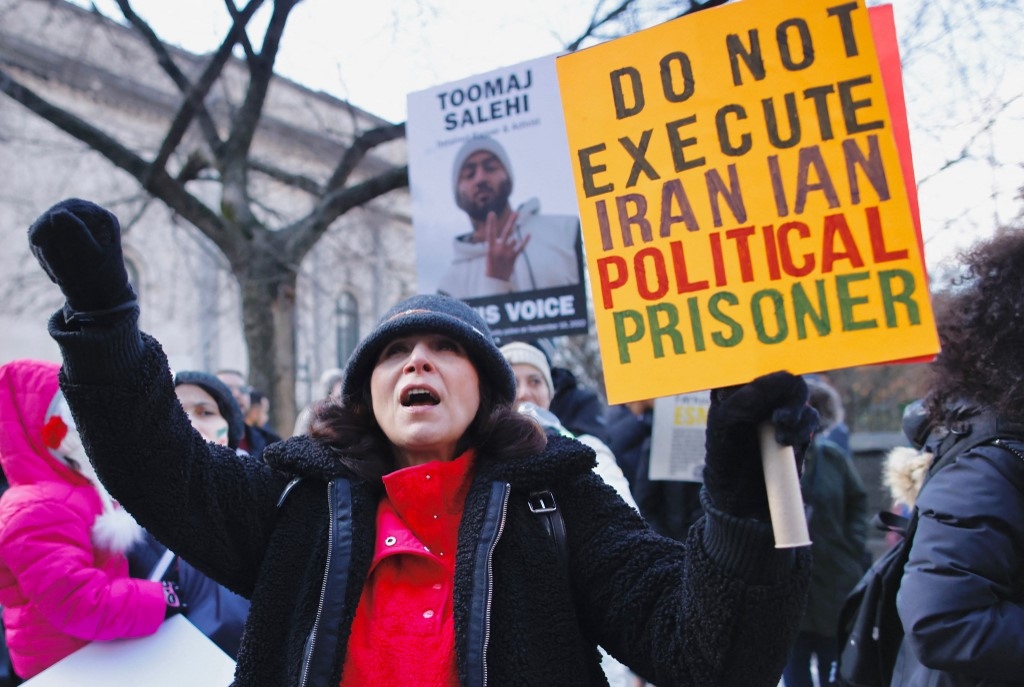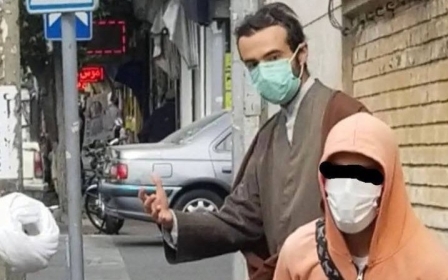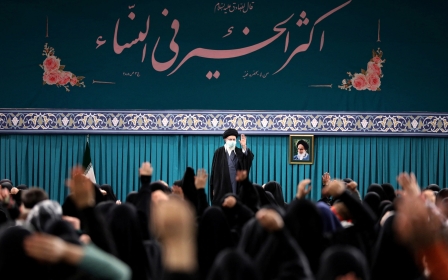Mahsa Amini: Iran widely condemned for executing two protesters after 'sham trials'

Iran's decision to execute two protesters found guilty of killing a member of a government volunteer security force drew international condemnation on Saturday, as the United States, Britain and others condemned the move.
Mohammad Mahdi Karami and Seyyed Mohammad Hosseini were hung to death on Saturday, judicial news agency Mizan Online reported. The two were found guilty of killing a member of the Iranian Revolutionary Guard's volunteer Basij force during anti-government protests that have swept the country in recent months following the death of Mahsa Amini.
New MEE newsletter: Jerusalem Dispatch
Sign up to get the latest insights and analysis on Israel-Palestine, alongside Turkey Unpacked and other MEE newsletters
Amini, a 22-year-old woman from the country's Kurdish region, died on 16 September while being held in police custody after being arrested for allegedly wearing her mandatory hijab "inappropriately".
The US State Department called the trials of Karami and Hosseini a "sham", condemning the death sentences "in the strongest terms".
"These executions are a key component of the regime's effort to suppress protests. We continue to work with partners to pursue accountability for Iran's brutal crackdown," State Department spokesman Ned Price said on Twitter.
The UN human rights office shared similar sentiments, accusing Iran of carrying out the executions following "unfair trials based on forced confessions".
"We urge Iran to halt all executions," it said on Twitter.
The latest hangings brought the number of people executed in connection to recent anti-government protests, to four.
British foreign minister James Cleverly on Saturday condemned the protesters' executions, urging Iran to "immediately end the violence against its own people".
"The execution of Mohammad Mahdi Karami and Seyed Mohammad Hosseini by the Iranian regime is abhorrent," Cleverly said on Twitter. "The UK is strongly opposed to the death penalty in all circumstances."
For its part, the Dutch government said it planned to summon the Iranian ambassador to the Netherlands for the second time in a month to voice its deep concerns over the execution of demonstrators.
"Appalled by the horrible executions of demonstrators in Iran. I will summon the Iranian ambassador to underline our serious concerns and I call upon EU Member States to do the same," Foreign Minister Wopke Hoekstra said in a tweet on Saturday.
Hoekstra said these actions underlined the need for the European Union to impose stronger sanctions on Iran than are currently being considered.
The Netherlands also summoned the Iranian ambassador in The Hague last month to protest against the execution of demonstrators in the country.
Four out of five countries in the world have abolished the death penalty, including the UK and the Netherlands, with the UN having adopted a resolution calling for a global moratorium on its use since 2007. The United States, Iran, Iraq, Saudia Arabia, China, North Korea and Vietnam are among nations whose courts continue to sentence offenders to death.
Middle East Eye delivers independent and unrivalled coverage and analysis of the Middle East, North Africa and beyond. To learn more about republishing this content and the associated fees, please fill out this form. More about MEE can be found here.





